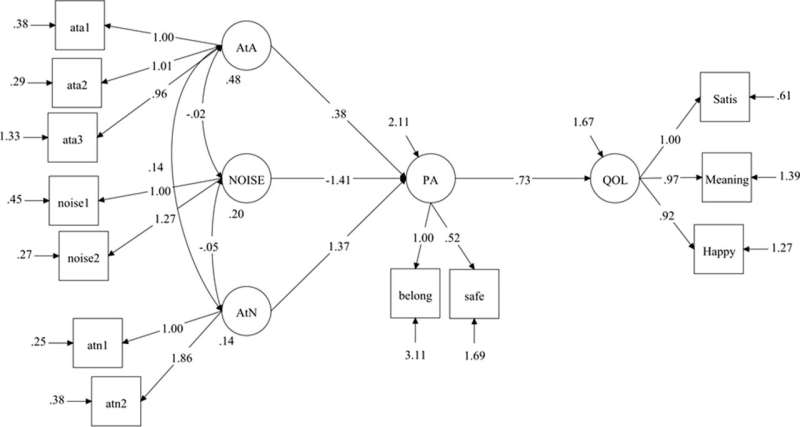A sense of belonging can lead to happiness, according to new research

Establishing roots in one's neighborhood leads to a more satisfying life. New research shows that being part of an inclusive social environment is essential in creating a sense of belonging.
There is a strong correlation between how 'at home' we feel where we live and our quality of life.
But what makes us feel at home in a place or feel a sense of belonging as the researchers say? It is important to have access to nature and things such as shops and public transport. But the social environment we surround ourselves with is even more important.
"The fact that both the material and social environment is vital to our quality of life and sense of belonging is relevant when we plan future living environments," says Associate ProfessorJan Georg Friesinger.
In a new study, he and colleagues at the University of Agder (UiA) have looked at the responses of more than 28,000 adults from 30 municipalities who participated in the Public Health Survey in Agder in 2019.
To assess people's quality of life, the researchers focused on three questions:
- Overall, how satisfied are you with your life nowadays?
- Overall, to what extent do you feel the things you do in life are worthwhile?
- Think about how you have been feeling in the past seven days. To what extent did you feel happy?
Strong correlation
Internationally, a lot of research has been done on sustainable environments and public health. It is known that we experience a higher quality of life if we feel a sense of attachment to our home place.
The study from UiA examines the importance of factors such as access to nature and services, noise and social environment for people to thrive where they live, and how this in turn is linked to quality of life.
"Material and social variables were very strong factors explaining the extent to which participants experienced place attachment and quality of life. There is a significant association between these," Friesinger says.
Consequences for urban development
The participants in the survey placed great emphasis on the social aspects of the local environment. This is about having friends, places where you can meet and having good relationships with your neighbors. If you feel lonely, you also feel less attached to a place.
"This should have consequences for how we develop our cities and towns, for example by creating places where people can meet. Feeling safe in your local environment helps you feel rooted to the place," Friesinger says.
Noise is a drawback
The study shows that material aspects in the local area are important when it comes to connecting to a place, although to a lesser extent than social aspects. While nature nearby and good local services have a positive effect, noise has the opposite effect.
"Noise from motorways or airports is very negative for place attachment. When planning roads, it is important to remember measures that reduce or prevent noise," Friesinger says.
Yet, research also shows that people get used to noise over time. Some international research even suggests that noise is less jarring if you already have a strong connection to the place where you live.
"Noise is one of the characteristics of a place that we tend to forget. We let ourselves be dazzled by the aesthetics and forget that we perceive places with all our senses," Friesinger says.
Social and material factors
Friesinger emphasizes that the social and the material must be seen together. He thinks that parks should be created, for example, to provide meeting places for all to enjoy.
"We know that social factors are more important than material factors in creating place attachment. But both factors contribute to this and thus to people's quality of life. We have to look at them together," Friesinger says.
The article is published in the journal Health and Quality of Life Outcomes.
More information: Jan Georg Friesinger et al, The significance of the social and material environment to place attachment and quality of life: findings from a large population-based health survey, Health and Quality of Life Outcomes (2022). DOI: 10.1186/s12955-022-02045-2



















